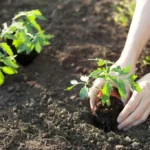Houseplants have become a common feature in many homes and offices, adding a touch of nature and tranquility to indoor spaces. However, for cat owners, the introduction of houseplants raises concerns about the potential risks to their feline companions. One such houseplant that garners attention in this regard is the yucca cane (Yucca elephantipes). The question of whether yucca cane is toxic to cats is a topic of significant interest, as the allure of greenery and the inquisitive nature of cats often intersect. In this guide, we will explore the potential toxicity of yucca cane to cats, helping cat owners make informed decisions about the presence of this popular houseplant in their homes.
- Yucca plants do best in a partly shaded location that receives bright, indirect light. Although yucca plants may grow in sunnier spots, their appearance could suffer from brown tips or white spots on their leaves.
- Giving your yucca plant the right kind of soil is somewhat of a balancing act. Yuccas do not need high quality soil, but it needs to be well-draining. However, it still needs to be heavy enough to hold the plant upright. Yucca plant soil should also retain water well. Try a 3:1 mixture of sand and peat in your container.
- Yucca plants prefer to be on the dry side and are considered drought-tolerant plants, which makes sense given their desert origins. In general, allow about the top half of the soil to become dry before watering. More specific watering requirements will depend on how much light your yucca plant receives. In lower light conditions, water your plant less; in brighter light conditions, water your plant a bit more.
- Propagating your yucca plant can be done in two main ways: through division or through pups. Propagation is best done in fall. To propagate by division, separate the rhizomes beneath the soil and plant your new yucca plant in appropriate soil and place in a sunny location. Keep the plant lightly moist until roots are established.
- Yucca plants are quite pest-resistant, another way that these plants are low-maintenance. Spider mites do not like yuccas.
Yucca Cane: A Brief Introduction
Yucca cane, known scientifically as Yucca elephantipes, is a striking houseplant celebrated for its bold, architectural appearance. Its long, sword-like leaves and low-maintenance requirements have made it a favorite in both homes and offices, where its unique aesthetics can add a touch of the outdoors to interior spaces. As the popularity of houseplants in interior décor continues to grow, it’s not uncommon for cats to be drawn to these green additions, whether as a source of curiosity or a nibbling temptation. In this context, understanding the potential risks and toxicity of yucca cane to cats becomes crucial for responsible pet ownership.
Potential Toxicity of Yucca Cane
While yucca cane is an attractive and low-maintenance houseplant, it comes with the potential for toxicity to cats. Yucca plants, including yucca cane, contain compounds known as saponins. These natural substances, while not harmful to humans, can be problematic for cats if ingested. When a cat chews on yucca cane leaves or stalks, they may release saponins, leading to adverse reactions. Common symptoms of yucca cane ingestion in cats include vomiting, diarrhea, and lethargy. These symptoms can range from mild to severe, and their severity may depend on the amount of plant material consumed and the individual cat’s sensitivity. It’s essential for cat owners to be aware of these potential risks and to take precautions when yucca cane is present in their living spaces.
Precautions and Actions
To mitigate the risks associated with yucca cane and cats, several precautions can be taken. First, consider the placement of yucca cane in your home. Placing it in areas that are less accessible to your cat, such as high shelves or rooms that your cat does not frequent, can help reduce the likelihood of plant ingestion. Additionally, using deterrents, such as bitter-tasting sprays or physical barriers, can discourage cats from approaching and chewing on the plant. It’s also essential to be observant of your cat’s behavior and monitor for any signs of plant ingestion. If you suspect that your cat has consumed yucca cane or is exhibiting symptoms of toxicity, seek prompt veterinary care. Timely action can make a significant difference in ensuring your cat’s well-being.
Conclusion
In conclusion, the allure of houseplants like yucca cane in our indoor spaces must be balanced with a thorough understanding of the potential risks they may pose to our feline companions. While yucca cane’s striking appearance and low-maintenance qualities make it an attractive choice for many, cat owners should be aware of the potential for toxicity. By taking precautions, such as strategic placement and deterrents, cat owners can create a safer environment for their pets. Responsible pet ownership includes being informed about the potential dangers and taking proactive measures to protect our beloved feline friends. With the right precautions and quick action if necessary, cat owners can enjoy the beauty of yucca cane while ensuring the safety and well-being of their cats.




